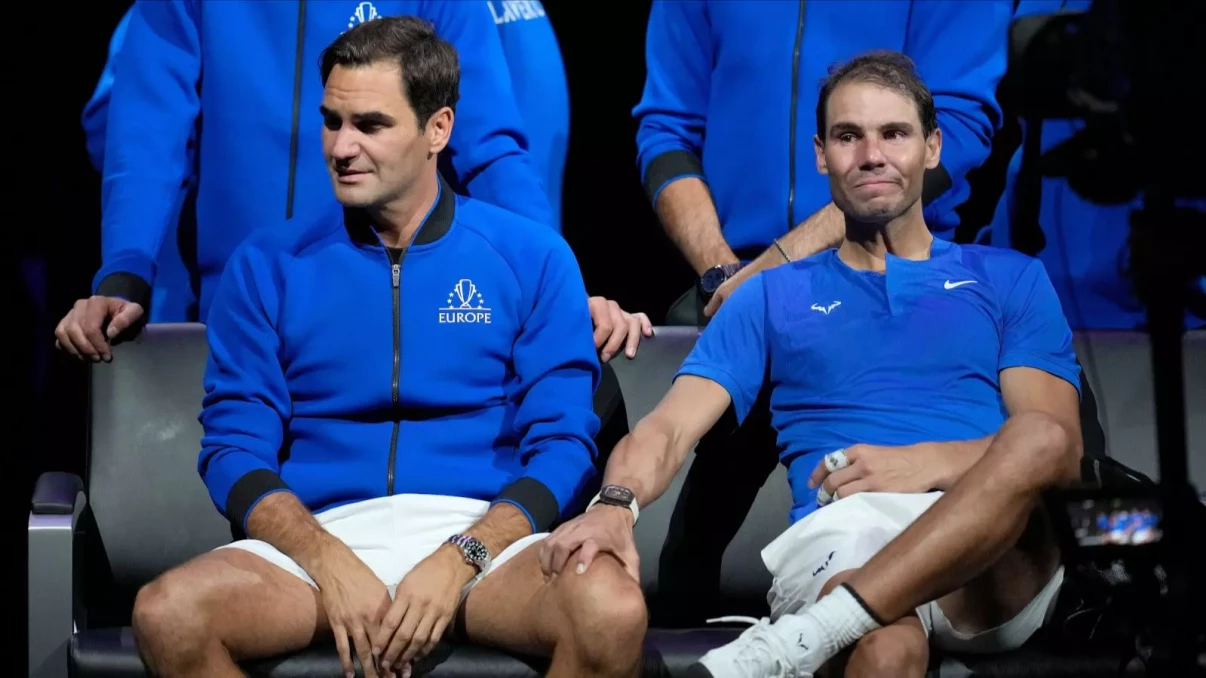Rafael Nadal: "You can be a fierce competitor without hating your rival"
 By
SABC Sport
By
SABC Sport
26th November 2025

Tennis legend Rafael Nadal is proud that he never lost sight of sportsmanship during his decades-long rivalry with Roger Federer and Novak Djokovic.
The rivalries between Nadal, Federer and Djokovic are universally considered to be three of the greatest rivalries in the history of tennis.
Nadal finished with a 24-16 record from his 40 matches with Federer and a 29-31 record from his 60 matches with Djokovic. The head-to-head series between Djokovic and Federer finished 27-23 in favour of the Serbian.
The 'Big Three' rivalries are the three most prolific matchups by number of matches contested in the Open Era of men's tennis.
Nadal, a former world No. 1 and 22-time Grand Slam champion, called time on his glittering 23-year career at the 2024 Davis Cup Finals.
During an appearance on the Universo Valdano programme on Spanish TV network Movistar+, Nadal discussed his relationship with Federer and Djokovic.
"You go through phases. When you're younger, you experience everything more intensely. As the years go by, things soften," said the 39-year-old.
"The positive thing about our time is that we've finished our careers and can go out to dinner together without any problem. This is something to be proud of. We've competed for the most important things, but we haven't taken it to extremes.
"The rivalry has stayed on the track, and personal relationships have always been based on respect, admiration, and even a certain friendship with our rivals."
The legendary Spaniard went on to point out how his respectful relationships with his biggest rivals have left a legacy that Carlos Alcaraz and Jannik Sinner have learned from in their own rivalry.
"I'm happy to have been a part of this story. Without taking anything away from Sinner and Alcaraz, who want to do things right, I think we (the Big Three) have helped new generations understand that you can be a fierce competitor without hating your rival.
"You can have an optimal relationship, not necessarily a friendship. It's a good legacy we've left behind."
Nadal also spoke about his renowned mental toughness and never-say-die attitude.
"People think I was losing and still believing, but no. What I didn't do was give up. I knew I was losing and I thought I was going to lose, but that didn't stop me from trying," Nadal explained.
"I tried to find permanent solutions. It comes from understanding what sport is. Sport is about trying to give your best even if you know you're going to lose.
"What obsessed me most in my career, or what would have always bothered me the most and what I couldn't tolerate, was if after playing a tournament I went home with the feeling that I hadn't done everything in my power to make things go well.
"I was trying to find solutions rather than dwell on the outcome. I was thinking about what I could do to try and change the dynamic. Most of the time when you're losing, you can try things, and the ones that work are always worthwhile.
"Sometimes, from those moments of mental effort, you achieve small victories that, over the course of a year, can turn things around."







